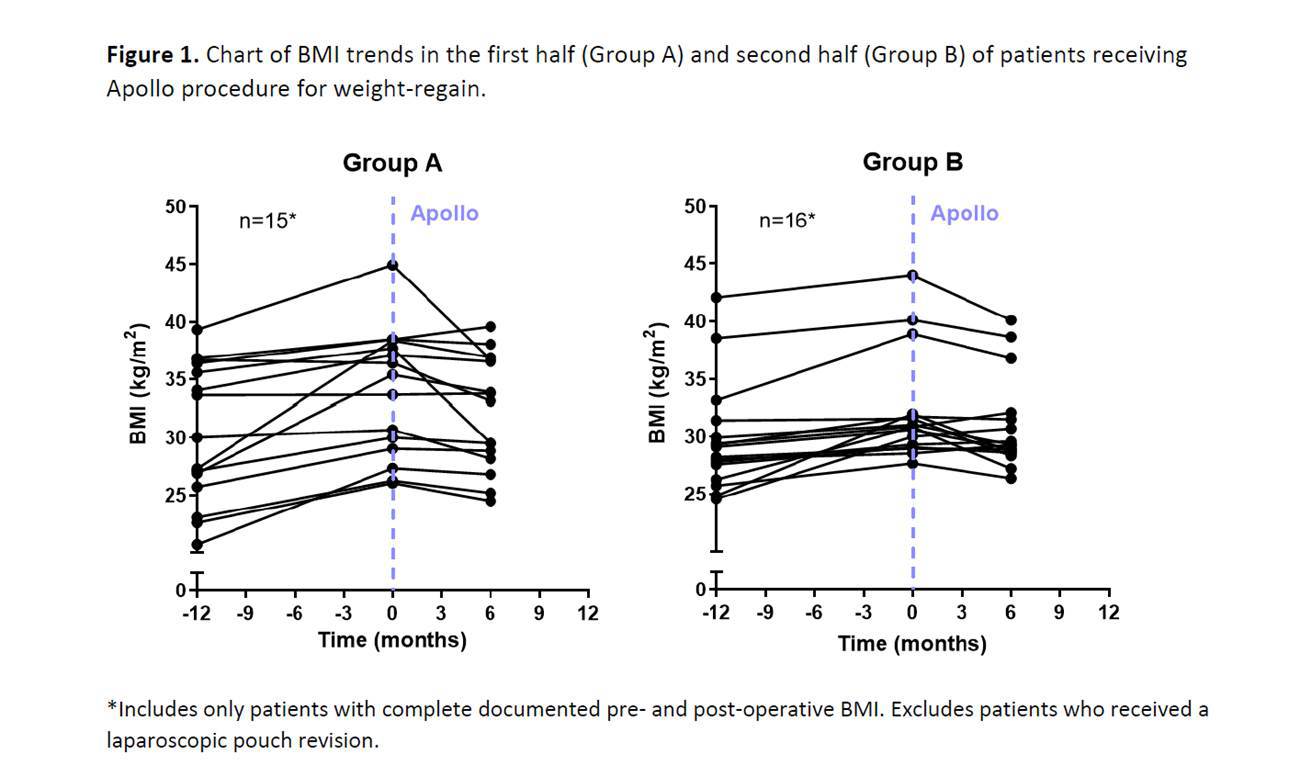|
Back to 2018 Program and Abstracts
ENDOSCOPIC GASTROJEJUNAL REVISIONS FOLLOWING GASTRIC BYPASS: LESSONS LEARNED IN MORE THAN 100 CONSECUTIVE PROCEDURES
Catherine Tsai*, Ulf Kessler, Rudolf Steffen, Hans Merki, Joerg Zehetner
Visceral Surgery, Clinic Beau Site, Bern, Switzerland
Background: Weight regain is one of the long-term challenges after Roux-en-Y gastric bypass in morbidly obese patients. Dilation of the gastrojejunal anastomosis is one factor for loss of restriction and therefore weight regain; it can also be the possible cause for dumping syndrome. The aim of the study was to analyze the feasibility, safety, outcome and learning curve of endoscopic gastrojejunal revisions after its introduction in a large tertiary bariatric center.
Methods: From January 2016 to October 2017 we reviewed the electronic records of all patients undergoing endoluminal revision of the gastrojejunostomy with the Apollo Overstitch system (Apollo Endosurgery, Austin, Texas, USA). Demographic details, procedure details and outcome variables were recorded.
Results: There were 83 patients (M:F=21:62) treated with endoluminal revision for either weight regain (n=62), dumping syndrome (n=13) or dumping syndrome and weight regain (n=8) with a total of 102 endoluminal revisions. The mean procedure time was 17.7 min, with a median number of 1 suture (range 1-3). There were no complications recorded within 30 days (no bleeding, no re-intervention, no dilation). In the weight regain group, learning curve was analyzed by comparing the first (group A) with the second (group B) half of patients (Figure 1). Procedure duration decreased from mean 17.8 minutes in group A to mean 16.7 minutes in group B. The rate of patients requiring further laparoscopic pouch revision decreased from 22.6 % to 3.2% (p<0.05). All patients with dumping had treatment response, with 66.6% having resolved and 33.3% having improved symptoms after 1 or 2 Apollo procedures.
Conclusion: Endoscopic revision of the gastrojejunostomy is a feasible and safe procedure after Roux-en-Y gastric bypass for weight regain or dumping syndrome. It can successfully stop the progression slope of weight regain or achieve additional weight loss. A learning curve is associated with the procedure. Around 20% of patients will need repeat endoscopic intervention within 1 year to achieve sufficient narrowing of the anastomosis.

Back to 2018 Program and Abstracts
|

